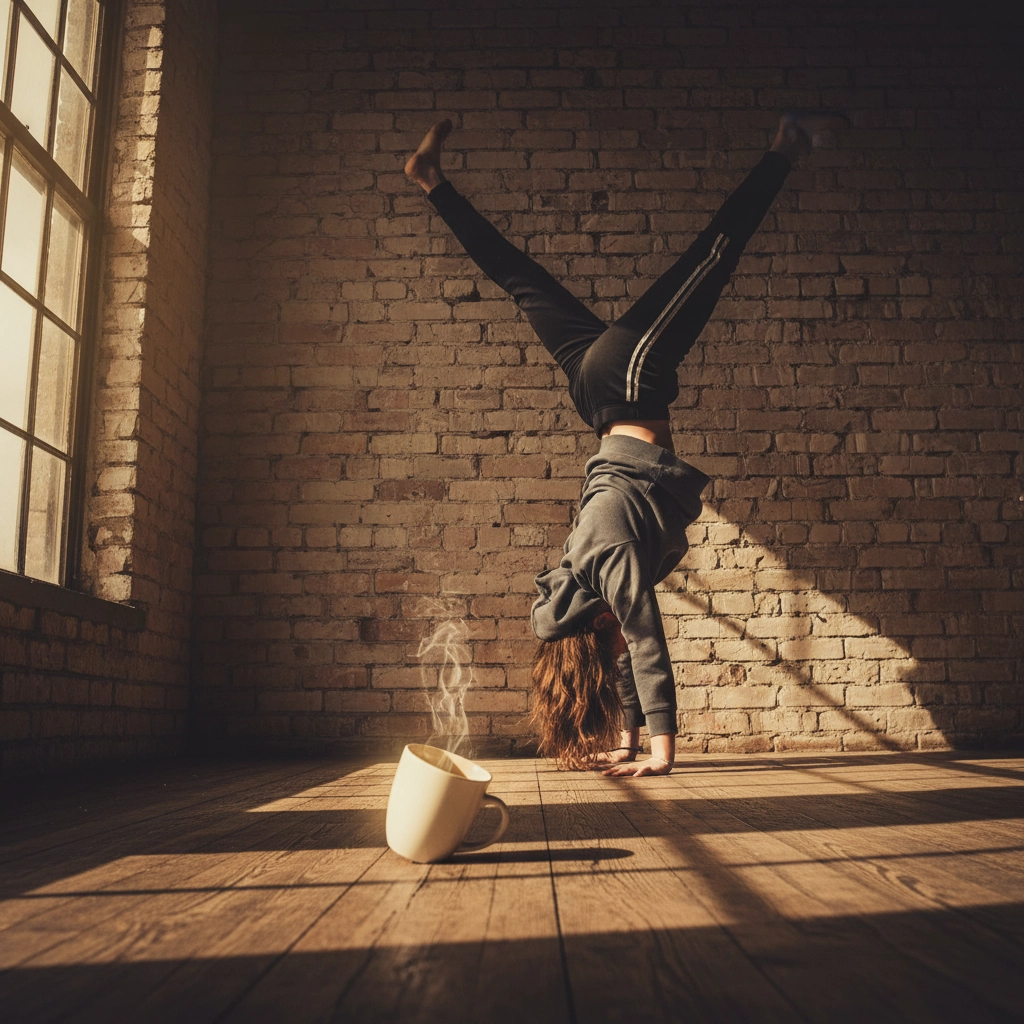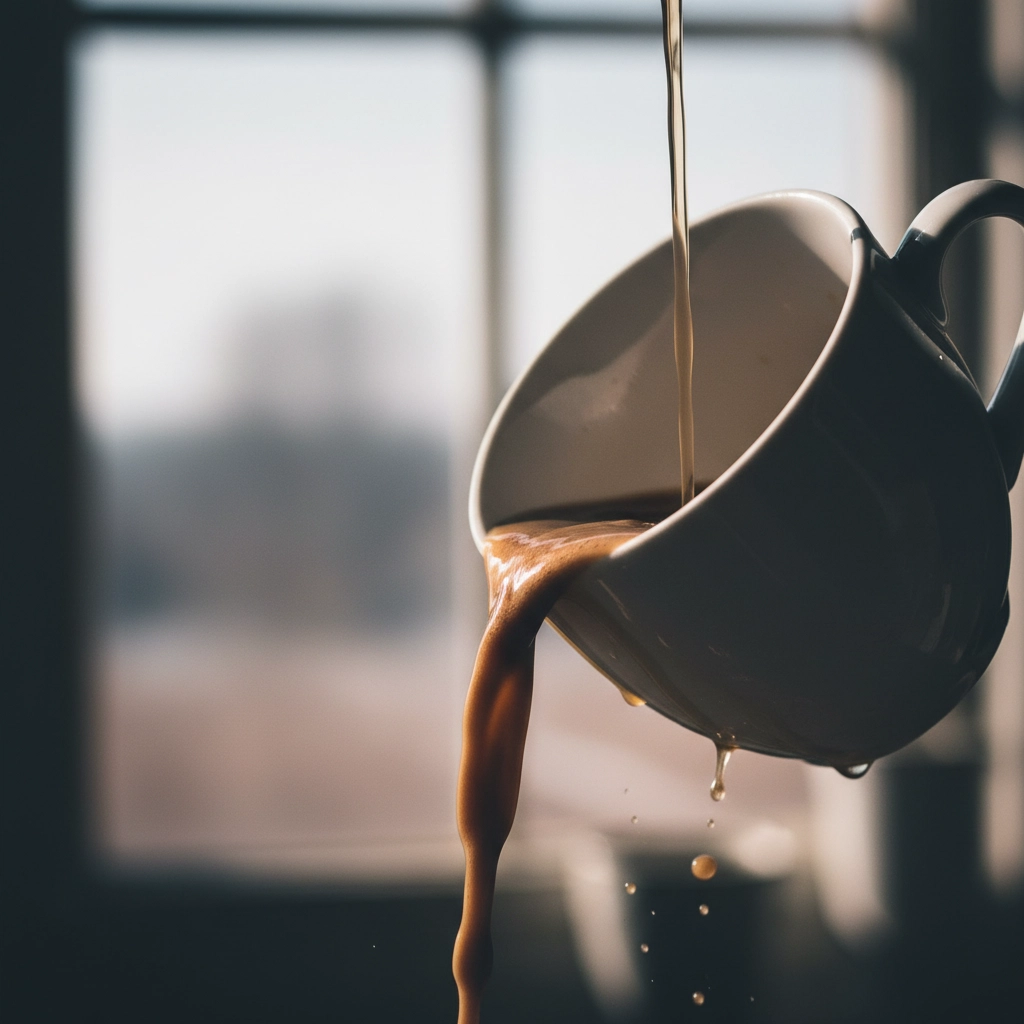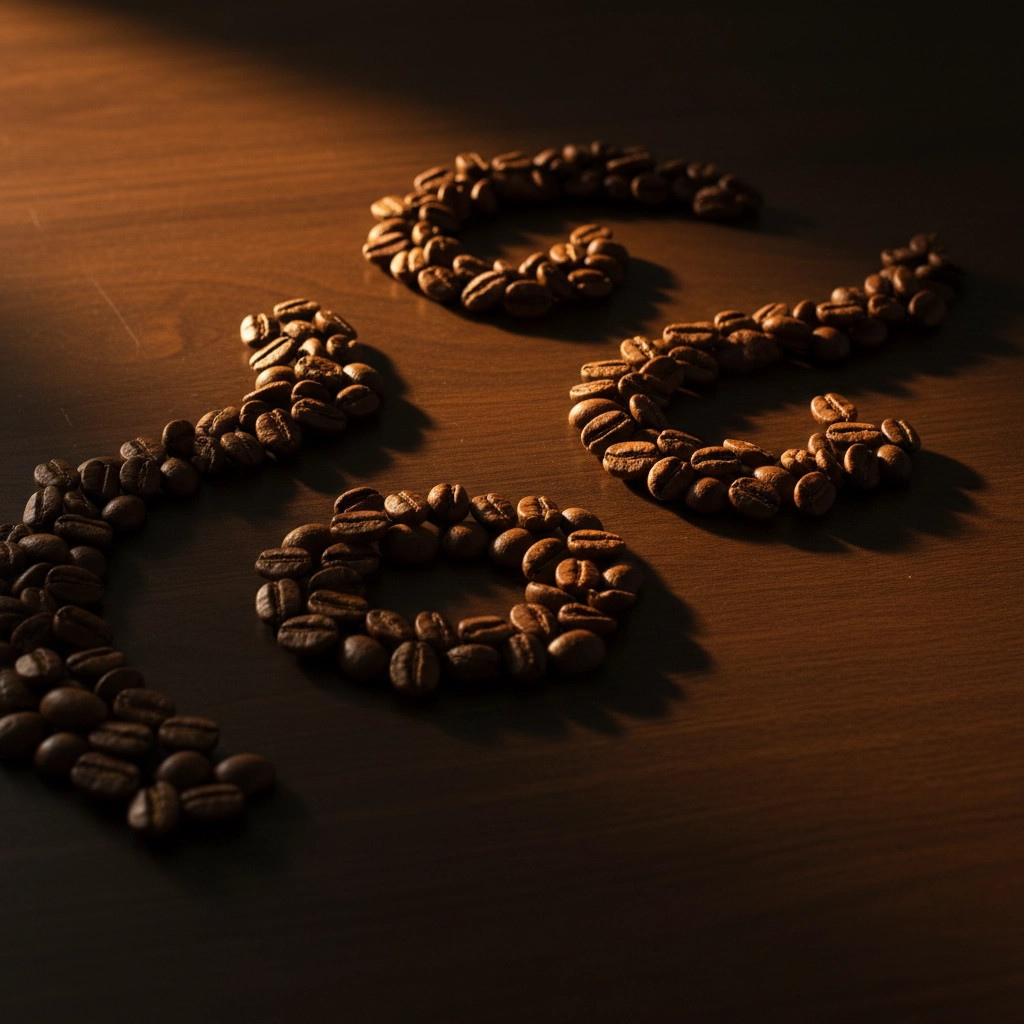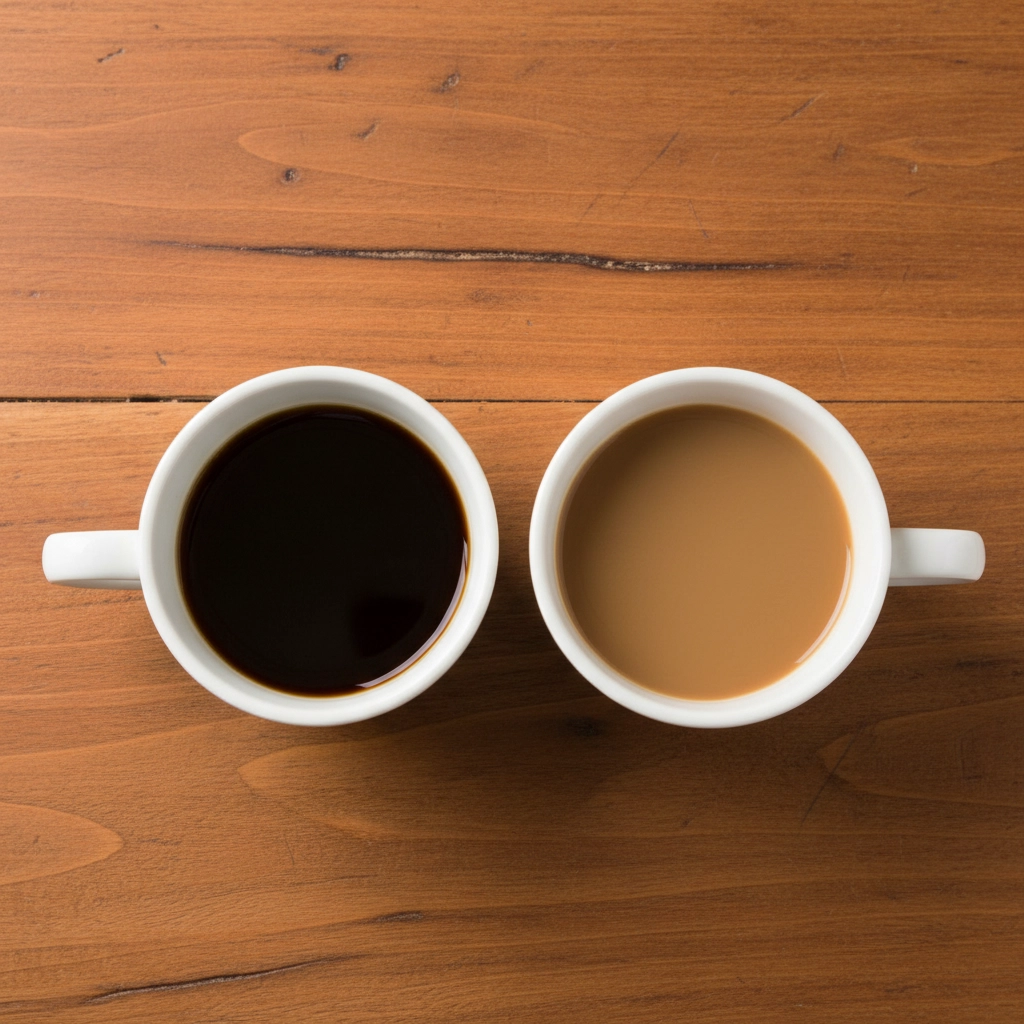Let's get this out of the way right off the bat: drinking coffee upside down will likely result in a very wet shirt, some confused looks from your coworkers, and possibly a call to HR about "unusual workplace behavior." But hey, we're all about experimenting with coffee here at Gently Ground, so let's dive into this delightfully absurd myth and some other coffee misconceptions that are actually worth debunking.
The Great Upside-Down Coffee Experiment
First things first, what exactly does "drinking coffee upside down" even mean? Are we talking about hanging from monkey bars while sipping your morning brew? Doing a headstand with a travel mug? Or maybe just flipping your cup over and hoping for the best?
The truth is, there's no scientific research on this particular coffee consumption method (shocking, I know), but we can make some educated guesses. Gravity still works when you're upside down, so your coffee would likely end up on the floor rather than in your stomach. Your taste buds would still function, though they might be distracted by the blood rushing to your head.

But here's the thing, this ridiculous "myth" actually serves as the perfect jumping-off point to tackle some real coffee misconceptions that people actually believe. So let's flip our perspective (right-side up, please) and dive into the myths that are genuinely worth busting.
Myth #1: Coffee Dehydrates You
This is one of those myths that sounds sciencey enough to be true, but it's actually more fiction than fact. Yes, caffeine is technically a diuretic, which means it can increase urine production. But here's what the myth-believers forget: coffee is approximately 98% water.
Think about it logically, you're consuming a cup of liquid that's almost entirely water, with just a small amount of caffeine. While that caffeine might make you visit the bathroom a bit more frequently, you're still getting a net gain of fluid. It's like worrying that eating a water-rich apple will dehydrate you because it contains a tiny bit of natural sugar.
For most people, the hydrating effects of the water in coffee far outweigh any mild diuretic effects of the caffeine. So go ahead, count that morning cup toward your daily fluid intake. Your body will thank you, and your taste buds will too.
Myth #2: Coffee Causes Cancer
This one has been making the rounds for years, causing unnecessary panic among coffee lovers everywhere. The good news? Recent research actually suggests the opposite might be true.
Studies have shown that people who drink more than four cups of coffee per day actually have lower risks of certain cancers, particularly head and neck cancers. That's right, your daily coffee habit might actually be working as a protective factor rather than a harmful one.

The confusion likely stems from earlier studies that didn't account for other lifestyle factors. Many heavy coffee drinkers also smoked cigarettes, which definitely do increase cancer risk. When researchers controlled for smoking and other variables, coffee consumption alone showed protective effects rather than harmful ones.
Of course, we're not suggesting you chug coffee all day for health benefits, moderation is still key. But you can definitely stop feeling guilty about that second (or third) cup.
Myth #3: Coffee Stunts Your Growth
Parents have been using this one for decades to keep kids away from coffee, but it's another myth that doesn't hold up to scientific scrutiny. There's no evidence that caffeine consumption affects height or bone development in any significant way.
This myth likely originated from early studies that suggested caffeine might interfere with calcium absorption. However, any minor impact on calcium can be easily offset by consuming adequate dairy or other calcium-rich foods. Plus, the effect is so small that it's essentially negligible in the context of a balanced diet.
The real reasons to limit kids' coffee intake are much more practical: caffeine can interfere with sleep patterns, and children are more sensitive to its effects than adults. But stunted growth? Not a thing.
Myth #4: Decaf Coffee Is Completely Caffeine-Free
Here's one that surprises a lot of people: decaffeinated coffee still contains small amounts of caffeine. The decaffeination process removes about 97% of the caffeine, but that remaining 3% means you're still getting roughly 2-12 milligrams of caffeine per cup.

For most people, this tiny amount is completely irrelevant. But if you're extremely sensitive to caffeine or trying to eliminate it entirely for medical reasons, it's worth knowing that "decaf" doesn't mean "zero caffeine."
The good news is that this small amount is unlikely to cause any of the effects people typically associate with caffeine, no jitters, no sleep disruption, no increased heart rate. It's just enough to keep the coffee police honest about their labeling.
Myth #5: Dark Roast Coffee Has More Caffeine
This is one of those myths that seems logical until you think about it more carefully. Many people assume that because dark roast coffee tastes stronger and more bitter, it must pack more of a caffeine punch. Actually, the opposite is true.
The roasting process breaks down caffeine molecules, so the longer and hotter the roast, the less caffeine remains. Light roast coffees typically contain slightly more caffeine than their dark roast counterparts. The difference isn't huge, we're talking about maybe 5-10% variation, but it's there.
The stronger, more bitter taste of dark roast comes from different compounds that develop during the roasting process, not from higher caffeine content. So if you're looking for maximum caffeine bang for your buck, go lighter rather than darker.
The Real Effects of Too Much Coffee
While we're debunking myths, let's talk about some actual effects of excessive coffee consumption that are worth knowing about. The general recommendation is to keep your caffeine intake below 400mg per day, which translates to about four 8-ounce cups of coffee.

Go beyond this amount regularly, and you might experience increased blood pressure, headaches, nervousness, restlessness, dizziness, heartburn, anxiety, muscle tremors, and insomnia. These aren't myths, they're real physiological responses to too much caffeine.
Coffee withdrawal is also a real thing, with symptoms starting as soon as 12 hours after your last cup if you're a regular drinker. Headaches and fatigue are the most common complaints, and they can last anywhere from a day or two up to a week or more in some cases.
Finding Your Perfect Balance
The key to enjoying coffee without falling victim to myths or overdoing it is finding your personal sweet spot. Pay attention to how different amounts affect your sleep, energy levels, and overall well-being.
Some people can drink coffee late into the evening without any sleep issues, while others need to cut off their caffeine intake by noon to sleep well. There's no one-size-fits-all approach, despite what the myth-makers might tell you.
At Gently Ground Coffee, we believe in enjoying coffee in whatever way makes you happiest, whether that's a single perfect cup in the morning or multiple cups throughout the day. Just maybe stick to drinking it right-side up for the sake of your shirt and your dignity.
The Bottom Line
Coffee myths are as abundant as coffee beans themselves, but most of them don't hold up to scientific scrutiny. Your daily coffee habit is likely much safer and healthier than the fear-mongers would have you believe. In fact, it might even be providing some health benefits you didn't know about.

So the next time someone tries to tell you that coffee will dehydrate you, stunt your growth, or cause cancer, you can confidently sip your Gently Ground brew and share the real facts. And if they suggest drinking it upside down for better absorption or enhanced flavor, well... maybe just smile and back away slowly.
The most important thing to remember is that coffee, like most things in life, is best enjoyed in moderation and with a healthy dose of common sense. Skip the acrobatics, embrace the science, and savor every properly-oriented sip.




